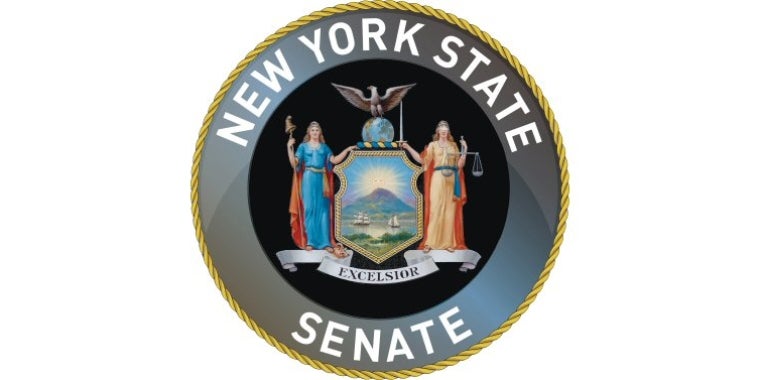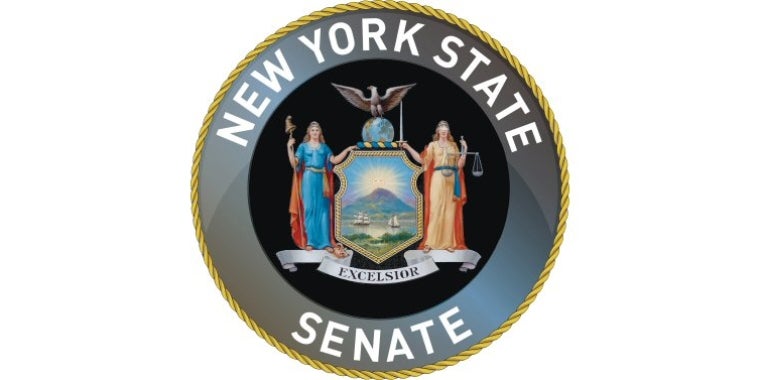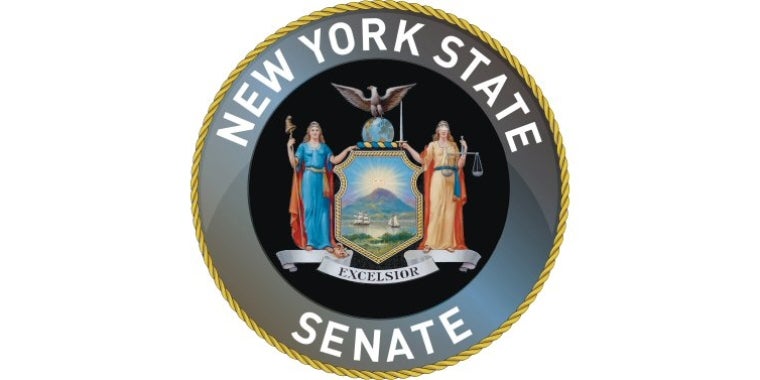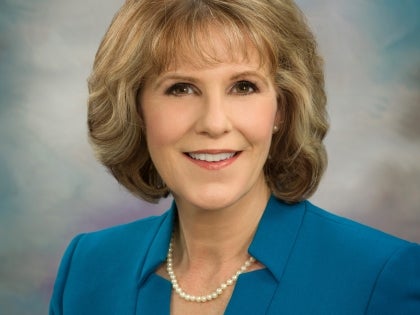
Senate Acts on Historic Strengthening of New York’s Sexual Harassment Laws
March 12, 2018
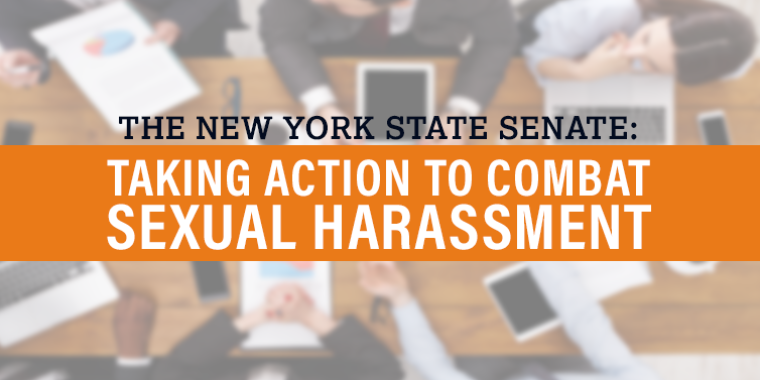
The New York State Senate will act today on legislation that is the most comprehensive response yet to sexual harassment in New York’s workplaces. The bill (S7848A), sponsored by Senator Catharine Young, Senator Elaine Phillips, Senator Terrence Murphy, members of the Senate Republican Women’s Caucus, and others, would prevent individuals from engaging in misconduct that creates a hostile work environment in either the public or private sectors, and encourage victims to come forward.
The major reforms passed today include: establishing a statutory definition of sexual harassment; prohibiting the anonymity of the accused in court-approved settlements and banning mandatory sexual harassment arbitration clauses; prohibiting confidentiality agreements unless the victim requests confidentiality; expanding protections to independent contractors; creating uniform policies for all branches of state and local government; and protecting hardworking taxpayers from paying for public sector harassment settlements.
Senate Majority Leader John J. Flanagan said, “The Senate is acting to create the safer workplaces all employees deserve by providing a comprehensive fix that incorporates key proposals from both Republicans and Democrats. It protects victims, gives them a voice, holds individuals accountable for their unacceptable behavior, and safeguards taxpayer money from being used in individual settlements. I urge the Governor and Assembly to join us in taking up this inclusive legislation and making New York a national leader in combating sexual harassment.”
Senator Catharine Young said, “#MeToo! In recent months, those simple yet powerful words have become a rallying cry for women and men who have been victims of sexual harassment. Their courage has awoken America to the stunning magnitude of the problem and created an overwhelming demand for change, not only in our culture, but in our laws. While egregious cases from Hollywood and the media industry have garnered the most attention, millions of workers across the board in public and private settings need and deserve to have safeguards. Every New Yorker, whether you are living paycheck to paycheck, in the middle class, or are rich and famous, will now have their voices heard with sweeping new protections under the law. Senate Republicans are leading the way, and I urge Governor Cuomo and the state Assembly to adopt our comprehensive plan.”
Senator Elaine Phillips said, “There is no place in our government, or society as a whole, for sexual assault or harassment. It is inspiring to see the movement of women across our country coming forward, sharing their personal stories, and overcoming the stigma and shame brought on by the despicable actions of others. This landmark legislation defines in statute sexual harassment for the first time in our state; bans secret settlements; prohibits mandatory arbitration for sexual harassment complaints; and protects independent contractors. New Yorkers will now have the protections and safeguards they deserve. As a Senator, as a woman, as a mother, I urge the Assembly and the Governor to take up this legislation and enact these sweeping changes.”
Senator Terrence Murphy said, “The victims of sexual harassment have been forced to remain silent for far too long. We now have legislation that gives them a voice to combat sexual harassment in the workplace, holds offenders accountable for their inexcusable behavior, and protects taxpayers from footing the bill to settle sexual harassment lawsuits.”
Senator Betty Little said, “There are enough challenges at work without having to worry about or suffer through being sexually harassed. Clearer laws that define harassment and the ramifications if someone does it, and what a victim’s rights are, will help to deter those who think they are above others. The message has to be reemphasized that this behavior is not acceptable regardless of who you are and where you work.”
Senator Pam Helming said, “Whether it’s in the public or private sector, victims of sexual harassment should feel safe when coming forward to make their voices heard. No individual should ever have to face a hostile work environment. When it does occur, laws and policies must be in place to empower individuals to speak out and to hold offenders accountable for their wrongdoing. I am proud to stand with my colleagues in the Senate Republican Conference to create a safer workplace for all employees.”
Senator Kathy Marchione said, “Every woman in New York State deserves a workplace and world free from the pernicious threats of sexual harassment, intimidation and coercion. With the passage of our comprehensive legislation, we will be another step closer to making this a reality. Once again, our Senate Republican Majority Conference is taking the lead by advancing a positive, purposeful and proactive policy that will help ensure all women have the opportunity to succeed and be free from the threat of sexual harassment.”
Senator Patty Ritchie said, “The only way we can begin to stop this problem of sexual harassment in the workplace is to allow victims to not only feel safe enough to come forward, but also to ensure their voice will be heard. This bill not only does that, but it holds perpetrators accountable for their actions and better yet, may encourage someone to think twice before committing this heinous action in the first place.”
The Senate legislation mirrors much of what the Governor proposed and builds on it in key ways. It would:
- Adopt the definition of “Sexual Harassment” into state law: Although the state Division of Human Rights has a definition it uses administratively, there is currently no definition in statute of what constitutes sexual harassment. That leaves litigants subject to varying interpretations by judges, who may improperly dismiss sexual harassment cases at the outset. One study found that approximately 37 percent of cases are dismissed pretrial.
- The bill creates a uniform definition of sexual harassment that is based on federal regulations: unwelcome sexual advances, requests for sexual favors, and other verbal or physical conduct of a sexual nature when submission to or rejection of such conduct, explicitly or implicitly, affects an individual's employment, unreasonably interferes with an individual's work performance or creates an intimidating, hostile or offensive work environment without regard to actual economic injury to or discharge of the individual.
- Prohibit secret settlements unless the victim requests confidentiality: Courts would be prohibited from accepting any sexual harassment settlements that include confidentiality agreements or provisions. This would help ensure that those responsible are held accountable and prevent future harassment.
- Prohibit mandatory arbitration for sexual harassment complaints: Mandatory arbitration clauses are often used by employers to force sexual harassment victims into private arbitration proceedings, which precludes their ability to seek legal action.
- Protect non-employees in the workplace: Currently, individuals who are not employees but are present in the workplace on a contract basis cannot file complaints against their harassers. The legislation would close this loophole by extending to contract workers the same right to file sexual harassment complaints to the state Division of Human Rights as individuals who are directly employed by the company or entity.
- Create a uniform policy for all branches of state and local government: The state Department of Labor would be required to create a strong model management policy defining and prohibiting sexual harassment. Every county, city, town, village, school district, or other public entity would be required to develop a sexual harassment prevention policy that applies to all employees and which includes investigation procedures and a standard complaint form. Each complaint would be confidential and the policy must include the prevention of intimidation, retaliation, or coercion to help protect the complainant.
- The measure also standardizes the process for state government. The legislature would be required to designate an independent attorney specializing in employment law to investigate complaints based on sexual harassment. A specialized unit within the state’s Joint Commission on Public Ethics would also be established to receive and investigate complaints. Managers and supervisors would be required to report as soon as they become aware of sexual harassment conduct.
- Protect taxpayer funds from being used for individual sexual harassment settlements: When there is a finding or admission of sexual harassment by a state or local employee, this measure holds the harasser financially accountable for the settlement by enabling the public entity to recoup taxpayer money.
The bill will be sent to the Assembly.
###
Share this Article or Press Release
Newsroom
Go to NewsroomStatement from NYS Senator Catharine M. Young (R,C,I-57th District)
February 28, 2019
Town of Mansfield Slated to Receive $300,000 State Grant
February 27, 2019
